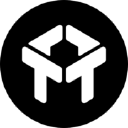How We Developed A $6K/Month Online Video Editing Software
Hello! Who are you and what business did you start?
Hey, I am Sabba and I am the co-founder of VEED.IO along with my partner in crime Tim. We are a London-based bootstrapped startup. Our web app, VEED, is a simple online video editing platform that allows users to do a bunch of cool stuff like auto subtitle videos, add video effects, add music, trim, rotate videos and much more all in the browser.
We launched just over a year ago, started charging 4 months ago and as of this interview, we are at $5,300 MRR and are just about profitable (Ramen profitable).

What's your backstory and how did you come up with the idea?
Tim and I met during an online hackathon. During the hackathon participants...



















